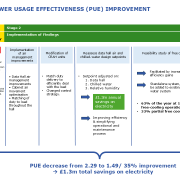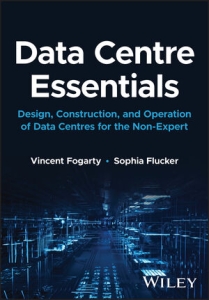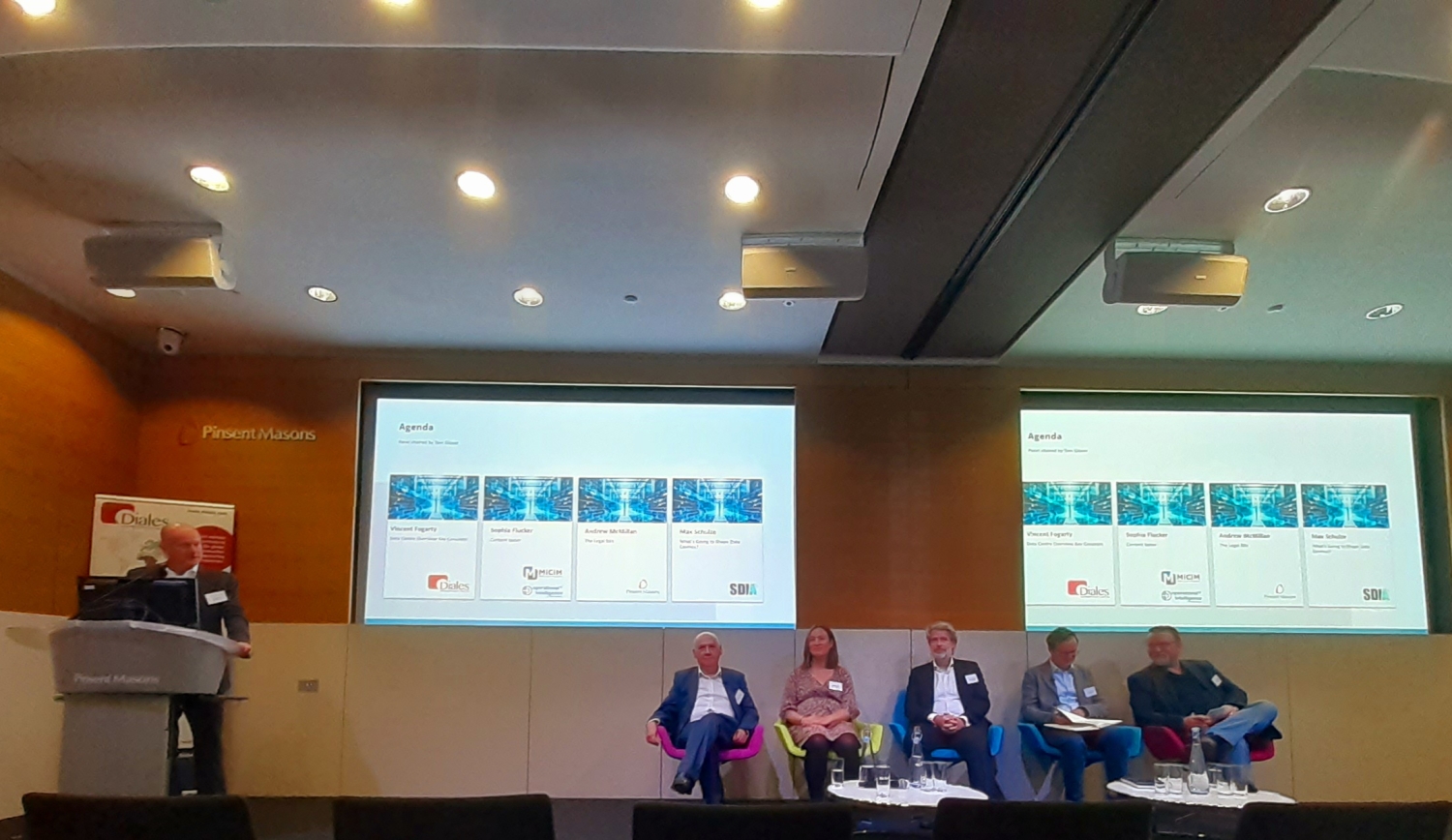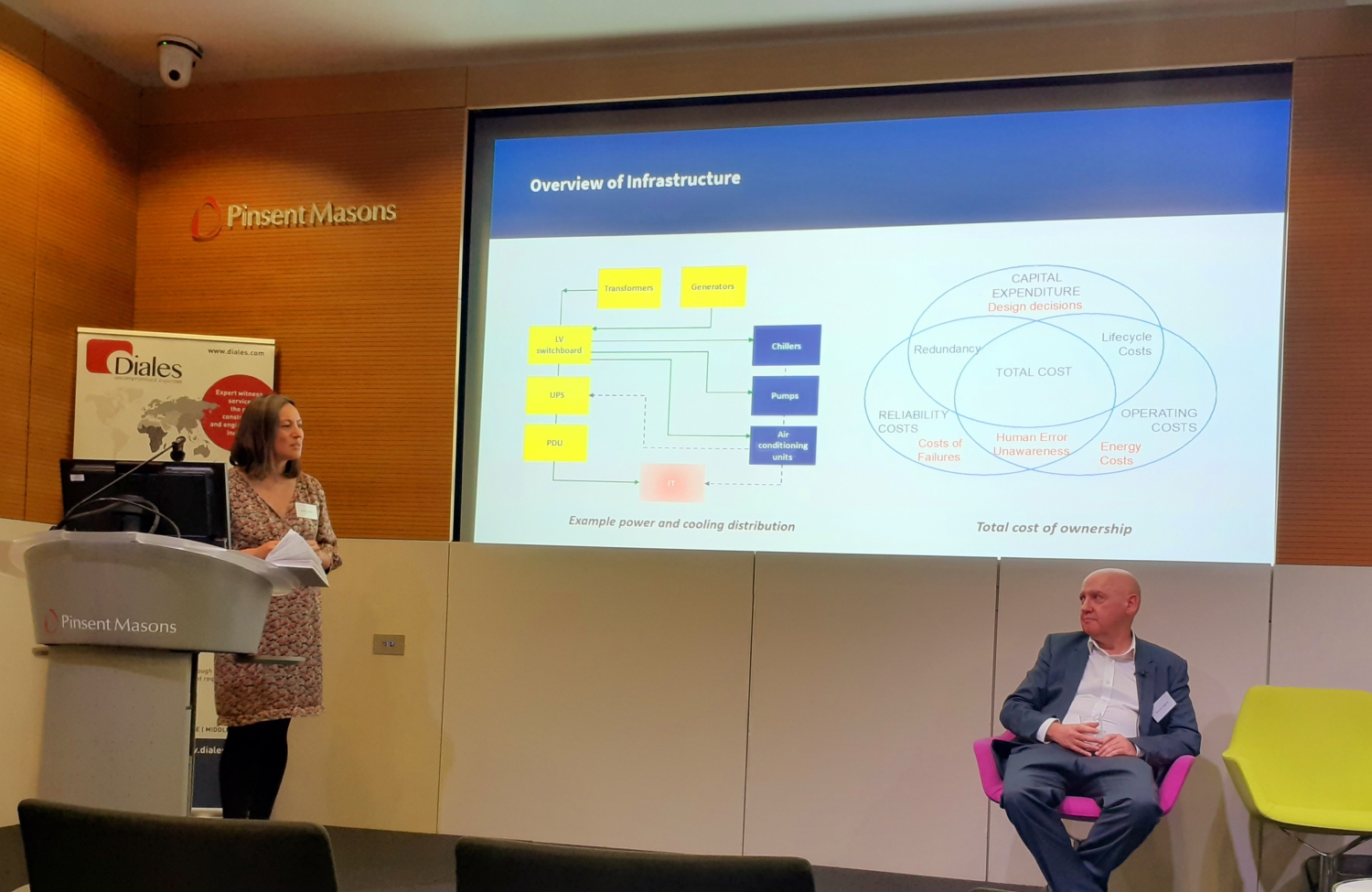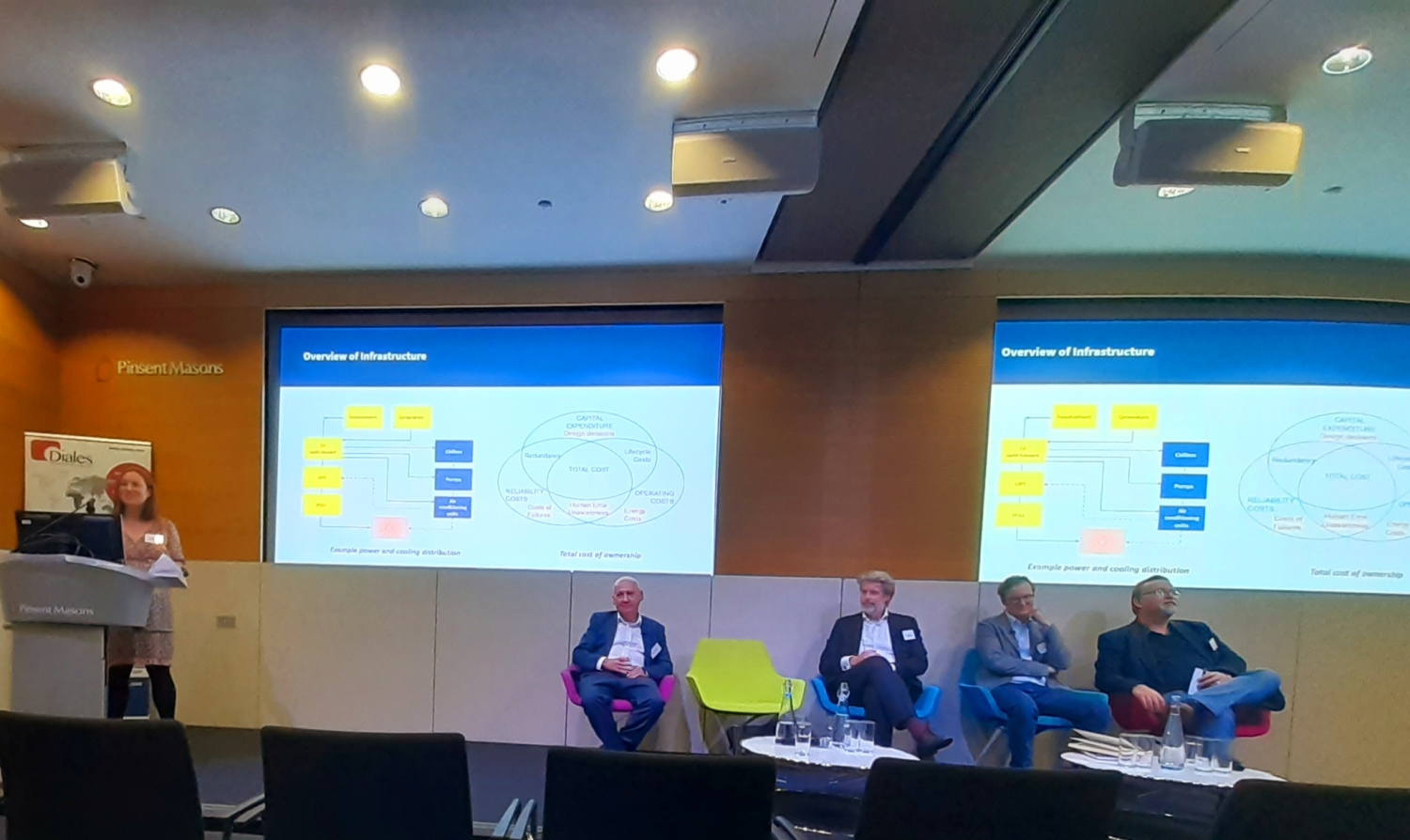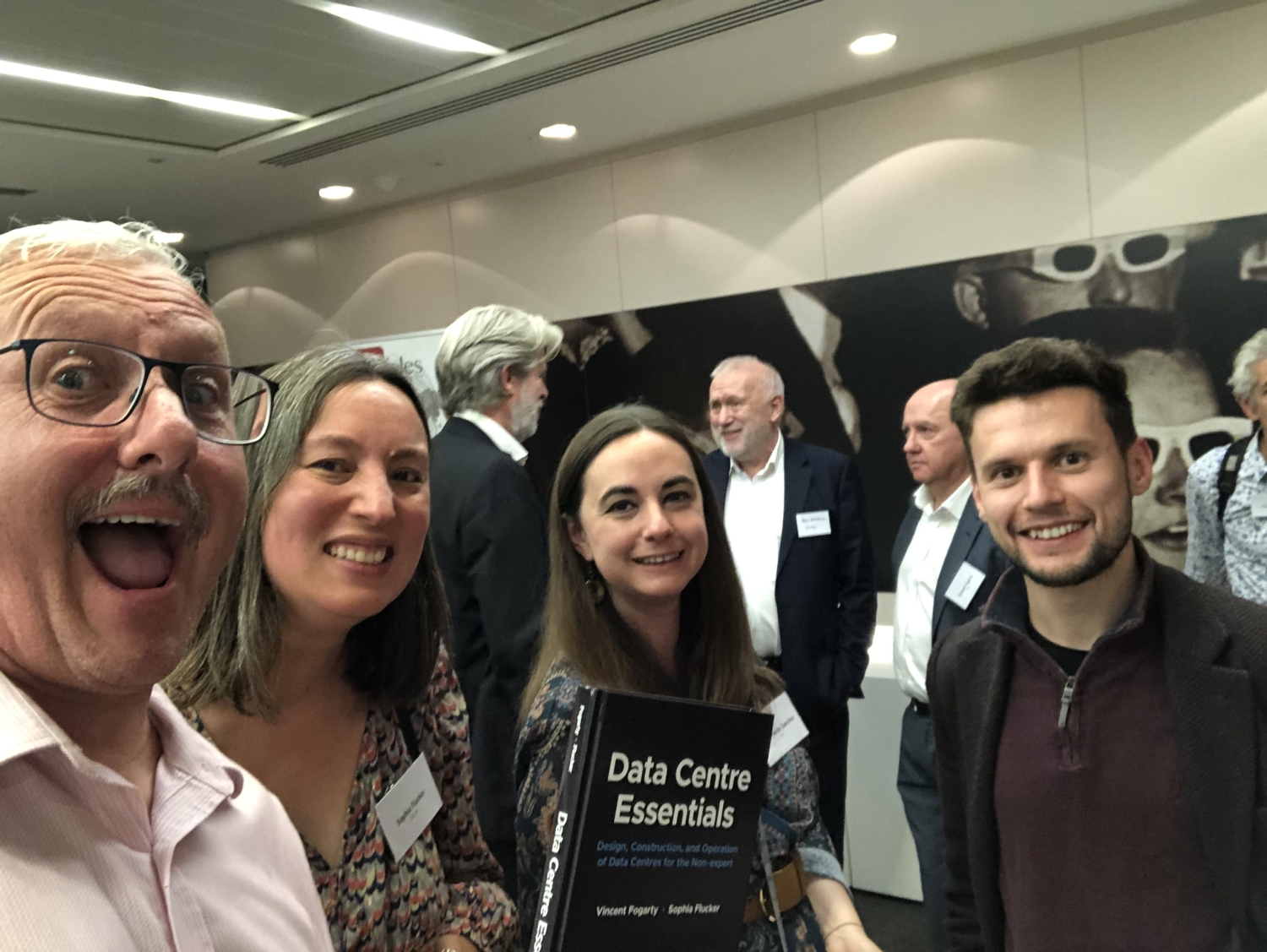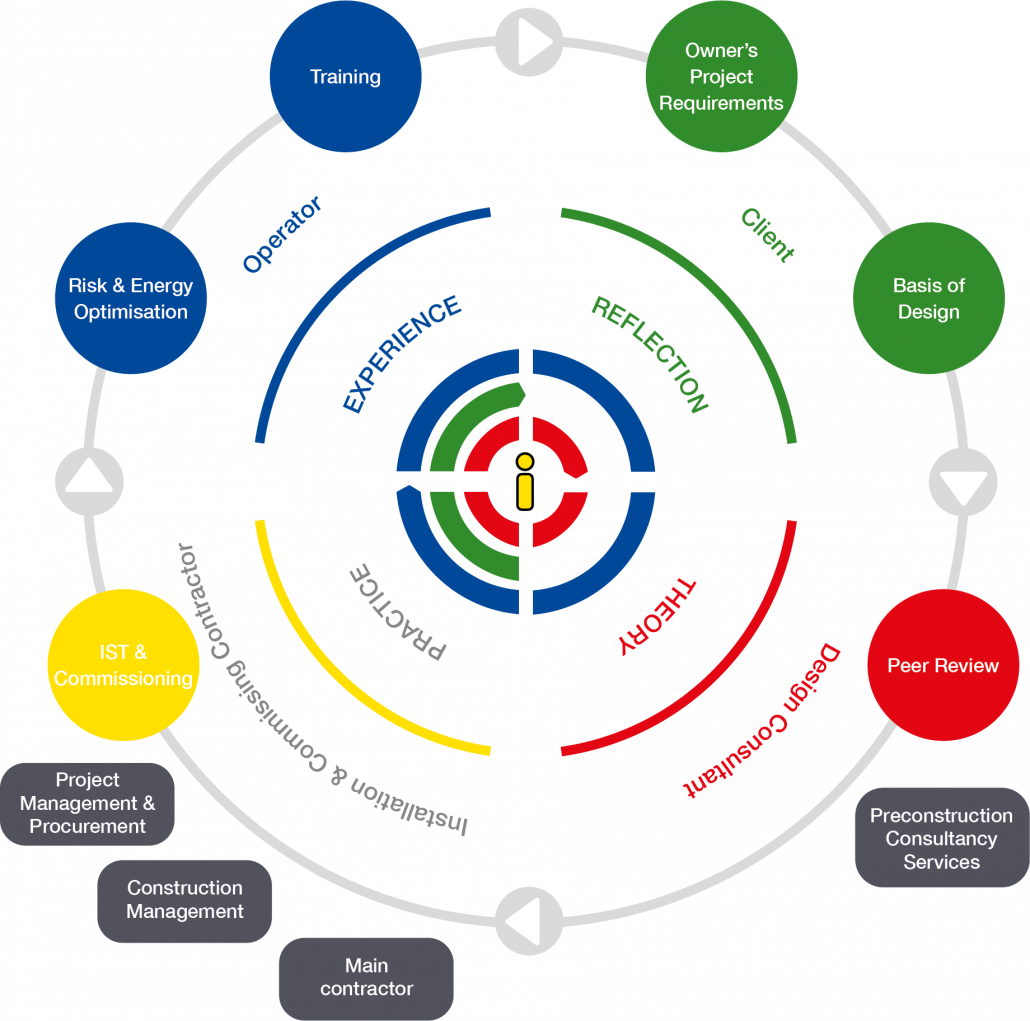🌟 Case Study Highlight: Transforming Data Center Efficiency 🌟
In a recent engagement, Operational Intelligence, part of the MiCiM Group undertook a project for a global financial services firm, focusing on significant energy-efficiency improvements at one of its legacy data centres, located in Greater London, UK. The firm implemented these changes to reduce operational costs and enhance the facility’s environmental sustainability while maintaining high reliability for their critical IT operations.
Background
The data centre in question was originally constructed in the early 2000s and featured a traditional chilled-water cooling system. At the outset of the improvement programme, the facility had a Power Usage Effectiveness (PUE) of 2.3, which is considerably higher than the industry target of 1.2 or lower for modern data centres. PUE is a key metric in assessing data centre energy efficiency, representing the ratio of total facility energy consumption to the energy used by IT equipment alone. This high PUE indicated significant potential for energy optimisation, particularly in the cooling systems, which were found to be the largest consumers of energy after the IT equipment.
The Improvement Programme
The energy efficiency initiative conducted by Operational Intelligence was structured into several phases, beginning with an energy assessment and a detailed survey of the data hall’s air temperatures. These assessments highlighted substantial inefficiencies, such as excessive air recirculation and bypass within the cooling system, which contributed to unnecessary energy consumption.
Following the assessment, a series of targeted improvements were recommended by OI and subsequently implemented:
- Air Management Enhancements: The team introduced targeted air management improvements throughout the data hall. These steps were crucial in minimising the mixing of hot and cold air streams, which allowed for more precise control of the cooling system.
- Cooling Unit Modifications: The operation of the computer room air handling (CRAH) units was amended in line with our findings to improve air management. Additionally, the control strategy for these units was altered to further enhance efficiency.
- Temperature Setpoint Adjustments: Over several months, the team gradually amended the setpoints for both air and chilled water temperatures. This careful, phased approach ensured that reliability was maintained while optimising energy use.
- Free Cooling Implementation: A feasibility study was conducted to explore the possibility of incorporating free cooling into the existing chilled water system. This led to the installation of additional equipment, enabling partial or full free cooling for the majority of the year, significantly reducing energy costs.
Results and Impact
The comprehensive improvement programme resulted in a remarkable 35% reduction in the facility’s PUE, bringing it down to 1.49. This translated into annual energy cost savings of approximately £1.3 million, reducing the data centre’s total electricity bill from £3.6 million to £2.3 million. Notably, these changes were made without compromising the data centre’s high availability and reliability, a critical concern for the financial services firm.
In addition to the energy and cost savings, OI’s approach to the project fostered a culture of continuous improvement and collaboration among the facility management and IT infrastructure teams. Moreover, by providing training and involving the operational team in the process, the firm empowered its employees to take ownership of the energy-efficiency initiatives, leading to sustained performance improvements and enhanced morale.
Conclusion
This case study demonstrates that even legacy data centres with high reliability requirements can achieve significant energy savings through well-planned and executed efficiency programmes. By leveraging engineering expertise and best practices in air management and cooling optimisation, OI enabled the firm to reduce both its environmental impact and operational costs, setting a strong example for others in the industry.

